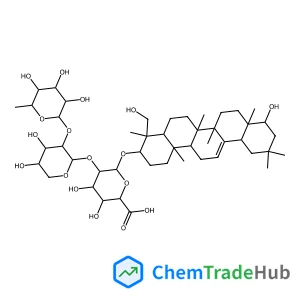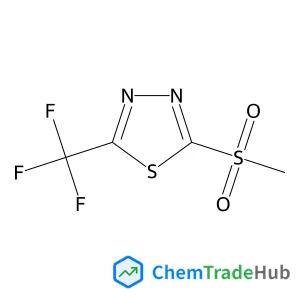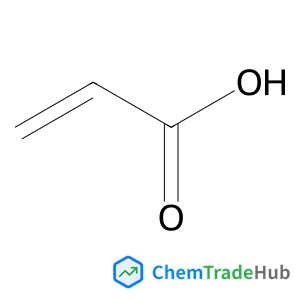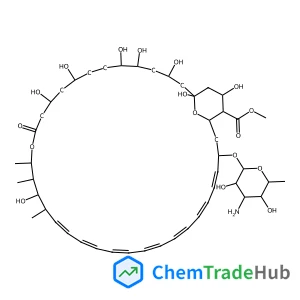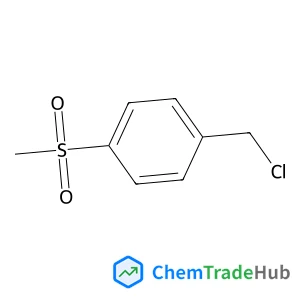Umpolung trifluoromethylthiolation of alcohols
文献情報
Ye Yang, Jiemin Ma, Jiaxiang Zhang, Hu Cai, Wentao Xu
Herein we develop a metal-free umpolung dehydroxytrifluoromethylthiolation of alcohols with commercially available PPh3 and N-trifluoromethylthiophthalimide within 30 minutes. This protocol shows excellent functional group tolerance and high regioselectivity. The dehydroxytrifluoromethylthiolation of a series of natural products and drugs further demonstrates its practicality. Preliminary mechanistic studies suggest that PPh3 is responsible for deoxygenation and the key trifluoromethylthiophosphonium ion may be hydrolyzed by H2O in solvent.
関連文献
IF 6.222
Synthesis of aviation fuel from bio-derived isophoroneIF 6.367
Solventless thermal crosslinked polymer protective layer for high stable lithium metal batteriesIF 6.367
Life cycle assessment of plasma-assisted ethylene production from rich-in-methane gas streamsIF 6.367
Illuminating endosomal escape of polymorphic lipid nanoparticles that boost mRNA deliveryIF 6.843
Microscopic insights into long-range 1D ordering in a dense semi-disordered molecular overlayerIF 6.222
Mechanism of lignocellulose modification and enzyme disadsorption for complete biomass saccharification to maximize bioethanol yield in rapeseed stalksIF 6.367
Milk exosomes with enhanced mucus penetrability for oral delivery of siRNAIF 6.843
Contents listIF 6.222
Front coverIF 6.843
掲載誌
Organic & Biomolecular Chemistry
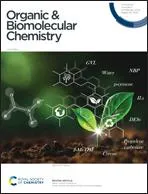
Organic & Biomolecular Chemistry (OBC) publishes original and high impact research and reviews in organic chemistry. We welcome research that shows new or significantly improved protocols or methodologies in total synthesis, synthetic methodology or physical and theoretical organic chemistry as well as research that shows a significant advance in the organic chemistry or molecular design aspects of chemical biology, catalysis, supramolecular and macromolecular chemistry, theoretical chemistry, mechanism-oriented physical organic chemistry, medicinal chemistry or natural products. Articles published in the journal should report new work which makes a highly-significant impact in the field. Routine and incremental work is generally not suitable for publication in the journal. More details about key areas of our scope are below. In all cases authors should include in their article clear rationale for why their research has been carried out.
おすすめサプライヤー
 軒諾科(泰興)薬物開発有限公司
軒諾科(泰興)薬物開発有限公司 Systec GmbH&Co.KG
Systec GmbH&Co.KG 岐阜宝冶チタンニッケル製造有限责任公司
岐阜宝冶チタンニッケル製造有限责任公司 B ü SCH Technology GmbH & Co. KG
B ü SCH Technology GmbH & Co. KG Qu ímica Vaid, S. A. C. V. の
Qu ímica Vaid, S. A. C. V. の 深圳三力高科技有限公司
深圳三力高科技有限公司 アルファモイスチャーシステムズ株式会社
アルファモイスチャーシステムズ株式会社 エス研究室
エス研究室 湖北新徳晟材料科技有限公司
湖北新徳晟材料科技有限公司 Infrarealホールディングス株式会社
Infrarealホールディングス株式会社










